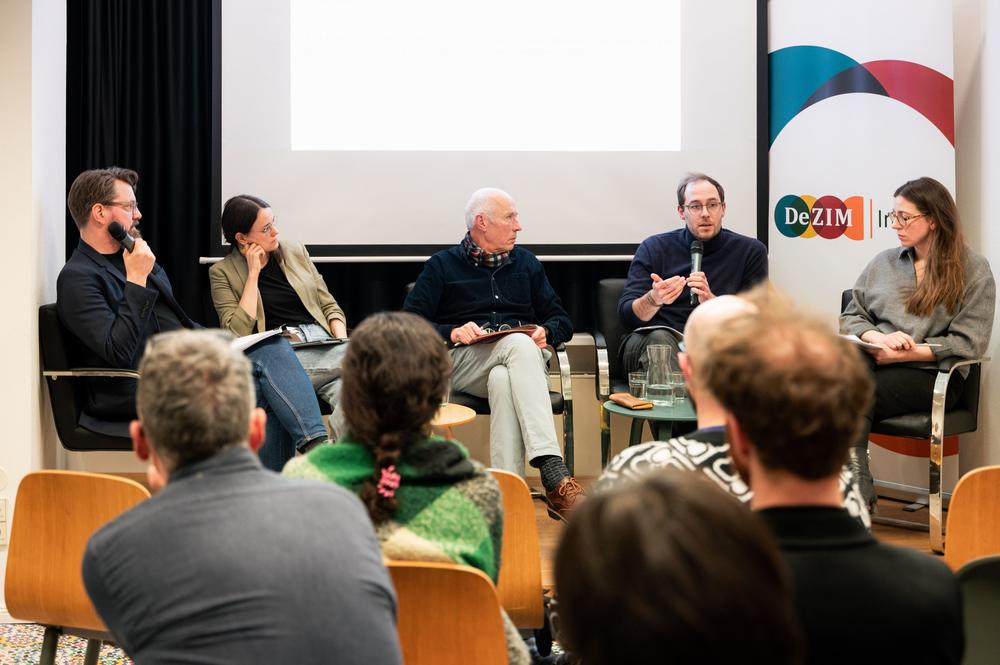Book Presentation and Discussion – Framing Refugees: How National Identity Shapes Refugee Policy
(from left to right) Moderator Dr. Olaf Kleist (DeZIM) in conversation with Dr. Ramona Rischke (DeZIM), Prof. Dr. Jürgen Gerhards, Prof. Dr. Daniel Drewski and Dr. Friederike Römer (DeZIM)
Image Credit: DeZIM/Paul Lovis Wagner
Debates about the admission of refugees are ubiquitous across most Western countries and occupy a significant share of current political discourse. However, the framing of these debates varies considerably, depending both on the receiving country and on the country of origin of the refugees.
News from Aug 11, 2025
In their book Framing Refugees: How the Admission of Refugees is Debated in Six Countries Across the World, SCRIPTS Professor Jürgen Gerhards and former SCRIPTS researcher Daniel Drewski address this issue, arguing that refugee policy is shaped less by objective factors such as international law and more by how national identity defines “us” and “the others.” These identity constructions, they contend, often draw on long-standing cultural values and historical narratives.
The German Centre for Integration and Migration Research (DeZIM) and SCRIPTS hosted a book launch and discussion at which the authors presented their thesis and main findings. The audio recording of the presentation and subsequent discussion is now available on DeZIM’s YouTube channel.
During the event, the authors illustrated their findings with examples from Turkey, Uganda, and Singapore. In Turkey, despite an authoritarian government, an open-door policy for Syrian refugees was framed through a shared Ottoman and Islamic heritage, portraying them as “brothers and sisters.” Uganda, one of the world’s poorest countries, maintains an open policy inspired by a pan-African view that considers colonial borders artificial. In contrast, Singapore enforces a highly restrictive stance, grounded in an economic self-definition that treats the nation as a company admitting only those who contribute “human capital.”
The study challenges conventional assumptions about refugee policy, showing that international law and the so-called “liberal script” play a minimal role in parliamentary debates in most of the countries examined, with Germany being a notable exception. It also reveals that some authoritarian regimes pursue more open refugee policies than liberal democracies, though not out of a commitment to human rights. Political debates on refugee reception, the authors argue, often reflect national narratives shaped over decades or even centuries, rather than a simple liberal–illiberal divide.
These findings emphasize the value of comparative analysis and the complexity of connecting political discourse to concrete policy outcomes. The panel underscored that understanding refugee policy requires looking beyond legal frameworks to the identity politics and cultural repertoires that shape how nations perceive themselves—and those they admit or exclude.

